Until now, any Discworld book relating to witches tended to be set in Lancre.
Now we moved onto the chalk downs (a lightly veiled Wiltshire or Dorset) in order to follow the story of Tiffany Aching.
Tiffany was just nine years old when a fairy stole her baby brother. She followed them into Fairy Land, armed with just a frying pan, to take on the Fairy Queen Herself.
What follows is a coming of age tale spread out, so far, over four books.
Though aimed at young adults, they are some of the most remarkable tales that Terry Pratchett has ever told. I know plenty of grown adults who would say that they are his best; and I count myself amongst them.
The Chalk doesn't really have witches. Tiffany's late grandmother was a Shepherdess. She was the witch that they don't have. This unspoken fact was acknowledged by all.
Primarily it was known by the Nac Mac Feegle. They weren't so quiet about it, having a propensity to yell such things from the hilltops. Fortunately they can hide behind blades of grass, so their yelling goes largely unheeded.
They are fairy folk, but they owe their heritage to a very stereotypical view of HIghland Scots. Imagine if the entire cast of Braveheart had shrunk down to a few inches high and believed that they were dead.
The dead bit is important, as they think they're now in Heaven. With all of the alcohol and fighting, it has to be Paradise, right?
When Granny Aching - their Hag of the Hills - died (or, from their point of view, stupidly got born back onto Earth again), the Nac Mac Feegle started looking out for her successor. They spotted Granny Aching's own small grand-daughter taking on the Queen of Fairy with a frying pan.
It was a fair cop really.
They are determined to 'help' (in the broadest possible meaning of the word sometimes) Tiffany fulfill her destiny to become a witch on the Chalk. That includes watching over her, as she travels away from home, to learn witchcraft in the Ramtops.
Through Tiffany's eyes, we meet hundreds of witches. A dozen or so become quite major characters, acting as her mentor or her peers and their mentors. There aren't just vague references here, we discover precisely how Discworld witches are trained; and we get to attend the Witch Trials with them.
(Incidentally, Witch Trials there aren't nearly as scary as in our own world. It's more of a competition to see who has the best spells, rather than the whole burning at the stake thing.)
But one witch above all stands out as one of the most influential in Tiffany's young life.
That, of course, is Granny Weatherwax herself.


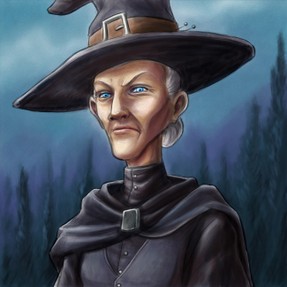 No Discworld fan will need telling who Granny Weatherwax is. She strides from the pages with such force that you almost expect her to step out of them.
No Discworld fan will need telling who Granny Weatherwax is. She strides from the pages with such force that you almost expect her to step out of them.
 If you're going to have a magical girl denied access to wizardry, then you need somewhere else to direct her.
If you're going to have a magical girl denied access to wizardry, then you need somewhere else to direct her. 
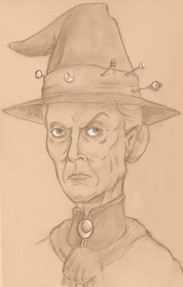 The trouble with Equal Rites is that it had created a fish out of water in Granny Weatherwax. It had done so before we'd actually fixed her on her own turf.
The trouble with Equal Rites is that it had created a fish out of water in Granny Weatherwax. It had done so before we'd actually fixed her on her own turf.



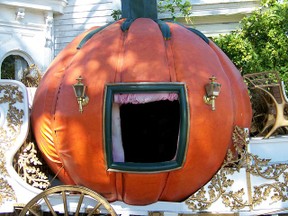 Can't you just tell that Terry Pratchett was having fun here?
Can't you just tell that Terry Pratchett was having fun here? 
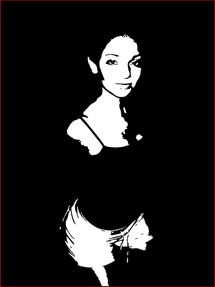 Later on, borrowing is such a fundamental tool in Granny Weatherwax's arsenal, that it comes as surprise to realize it only began here.
Later on, borrowing is such a fundamental tool in Granny Weatherwax's arsenal, that it comes as surprise to realize it only began here.

 Granny Weatherwax had always been portrayed as clever. Not necessarily in an academic way - there's little evidence that she went to school - but worldly wise and knowing the ways in which the universe worked.
Granny Weatherwax had always been portrayed as clever. Not necessarily in an academic way - there's little evidence that she went to school - but worldly wise and knowing the ways in which the universe worked. 

 We've seen several shades of Granny Weatherwax by now. We know so much about her that there is a certain expectation.
We've seen several shades of Granny Weatherwax by now. We know so much about her that there is a certain expectation. 
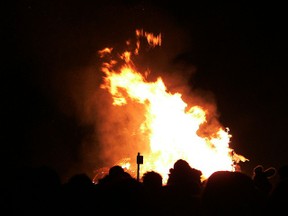 There is a definite sense that Terry Pratchett was comfortable with the character of Granny Weatherwax by now.
There is a definite sense that Terry Pratchett was comfortable with the character of Granny Weatherwax by now. 
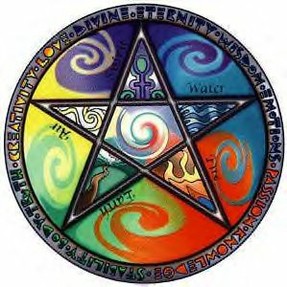 Discworld novels have always been good for all ages. They're layered in such a way that you get something out of them depending upon your maturity. Or state of mind. Or life experience. That's why I can read them over and over again, without ever being bored.
Discworld novels have always been good for all ages. They're layered in such a way that you get something out of them depending upon your maturity. Or state of mind. Or life experience. That's why I can read them over and over again, without ever being bored.



 Granny Weatherwax is not officially Tiffany Aching's mentor. But she recognizes a little bit of herself, as a young girl, in the fledgling witch.
Granny Weatherwax is not officially Tiffany Aching's mentor. But she recognizes a little bit of herself, as a young girl, in the fledgling witch.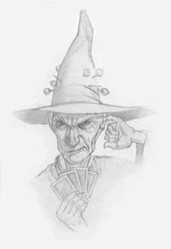

 St Tydecho's Churches in West Waleson 09/03/2014
St Tydecho's Churches in West Waleson 09/03/2014
 Goodies for an Outlander Premiere Partyon 03/06/2015
Goodies for an Outlander Premiere Partyon 03/06/2015
 Holocaust Memorial Day Interview with Rainer Höss, Grandson of Rudolf Architect of Auschwitzon 01/24/2015
Holocaust Memorial Day Interview with Rainer Höss, Grandson of Rudolf Architect of Auschwitzon 01/24/2015
 Romantic Valentine Gifts for an Outlander Fanon 01/16/2015
Romantic Valentine Gifts for an Outlander Fanon 01/16/2015



Comments
I was looking at the West Country on the news last night. I hope it's not too soggy around by you.
And yes, I adore DiscWorld books. I had 'Raising Steam' for Christmas. Glad you liked this article.
The Discworld books are some of my favourite and I loved this article! Thanks!
The Lancre books are also a great satire on my home region, down in the west country.
Does she?! How did I miss that one? I'll have to correct that. Thanks for the head's up.
I've only read the books about ten times. -.-
Um... Granny teaches Esk how to Borrow in Equal Rites.
Wow! I really wish I was you right now. You've got it all to come, brand new, discovering it for the first time. I'm on 100th of re-reads later. Still brilliant, but your position is even more wonderful.
Happy reading!
Hadn't heard of the author or series so thanks for introducing me.
I do thoroughly recommend Discworld. I have the whole series on my book-shelves and I've re-read every one of them several times over the years. There's few other books that I can say that about.
This is an amazing review. Such good writing and you have convinced me I have to read these books.
Yes, it was such a struggle... I'm never going to get that past you. LOL <3
Oh, forgot to mention, I guess you had a really, really hard time re-reading all of these books ... Lol, SY